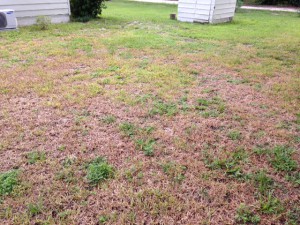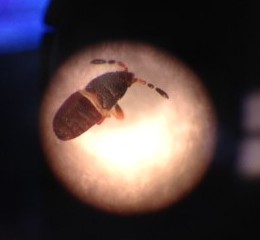When talking about pest issues in the landscape, green industry professionals often refer to IPM or Integrated Pest Management.
So what is IPM and why should it be used?
IPM is a combination of methods used to manage pests that has the least harmful effect on non-target organisms and the environment. The four categories of IPM are:
-
cultural practices
-
biological control
-
mechanical/physical
-
chemical control
There is not one perfect IPM plan for all landscape situations, but there are some key components to help develop one for any situation.
- Prevent pest problems – choose the Right Plant for the Right Place! Proper planting technique, choosing resistant cultivars, and good maintenance all contribute to overall health and can influence how likely plants are to survive disease, insect, or weed invasions.
- Scout for pests/damage – understand what pests are likely to target common landscape plants. For example, St. Augustinegrass is susceptible to attack by chinch bugs; know what to look for to spot an infestation early.
- Accurately identify the pest – it’s okay to ask for help with this! Your county extension office is a great place to start for both identification and control recommendations. Many times treatments are applied for the wrong pest and that is a waste of your time and money and it can make it harder to get a correct diagnosis.
- Follow control action guidelines – have a plan in place for threshold tolerance. How many pests/amount of damage is okay before
action is taken? What action will you take? Use least toxic methods first and combine the four methods listed above. If using chemicals, know how they work (mode of action) and be sure to rotate properly to prevent resistance.
- Evaluate and revise – continued scouting for pests will indicate if the method is working. Keep records so that you can make changes that will increase effectiveness.
If you are interested in learning more about Integrated Pest Management, visit the IPM Florida website .
- Camellias Brighten Up Winter Landscapes - October 31, 2024
- 2024 Gardening in the Panhandle LIVE! Fall Vegetable Gardening Recap - September 19, 2024
- Panhandle Watermelon Festival Big Melon Contest – Entries Accepted June 19 & 20 - June 14, 2024


